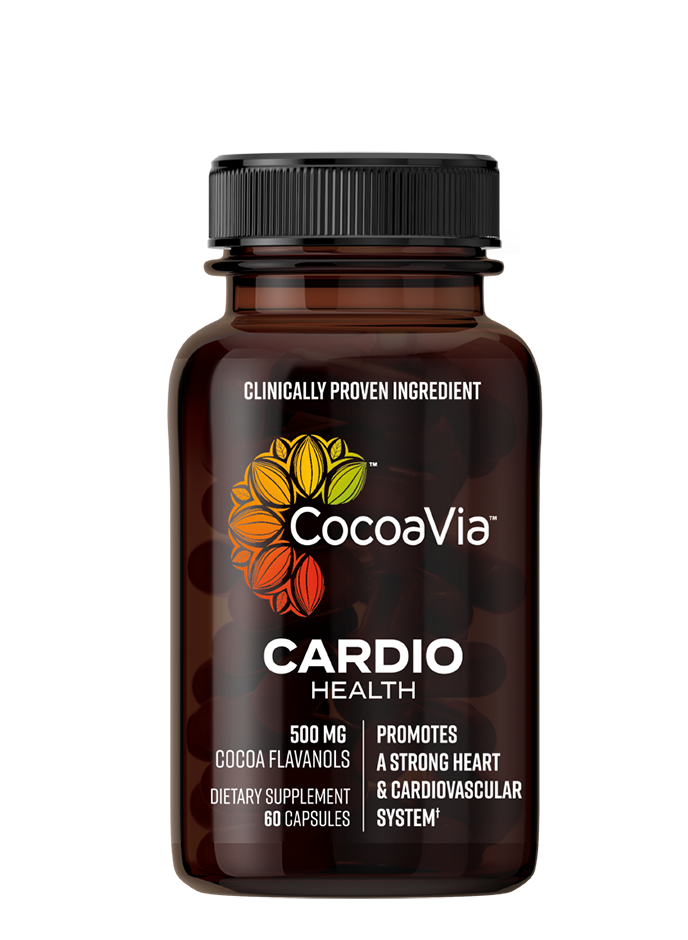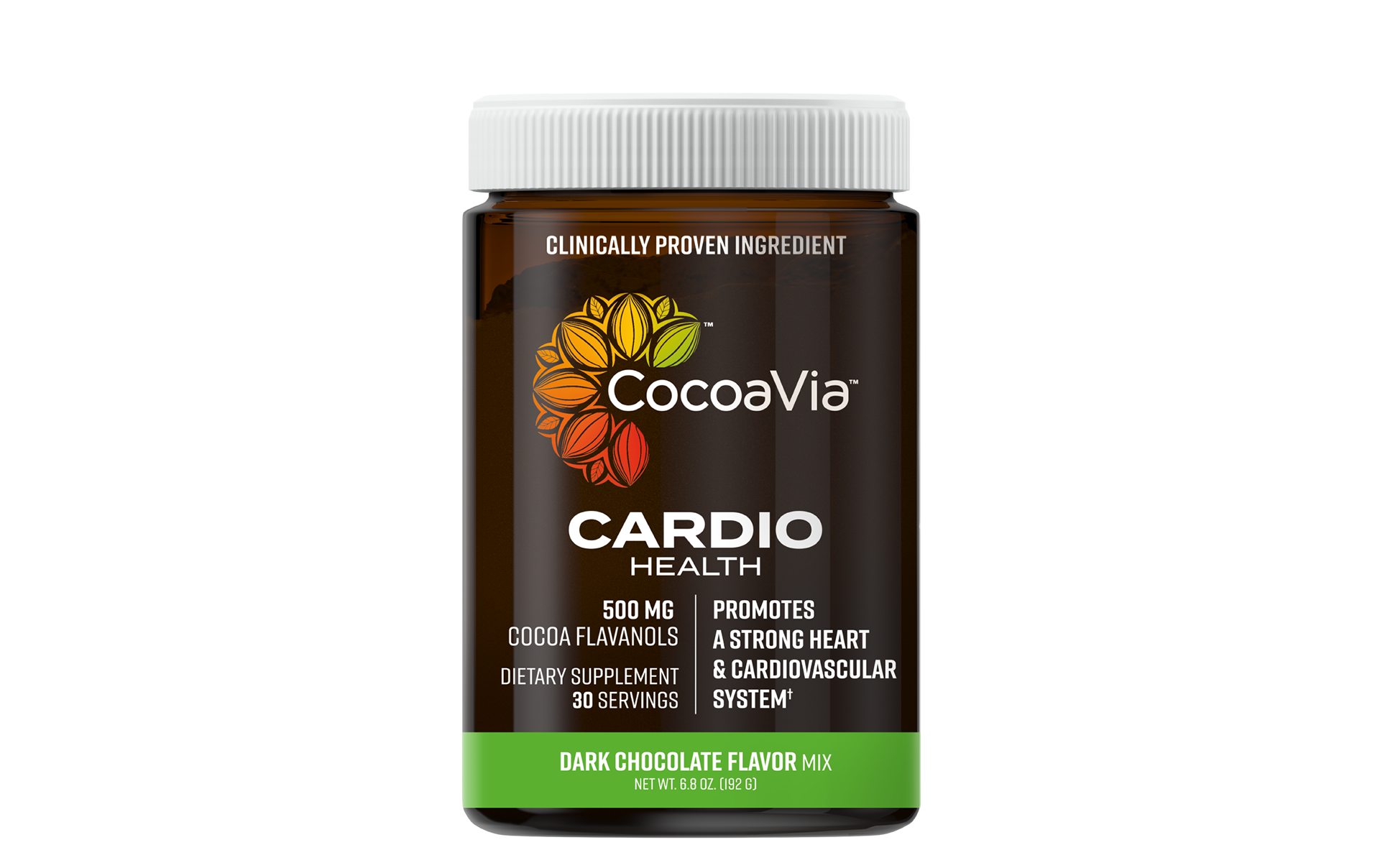A dietitian shares science-based strategies for enhancing your cardiovascular wellness.
Sure, you know where your heart is, but do you know how your heart is? Ignoring your cardiovascular health, especially as you get older, is like playing Russian roulette with your future. (In the U.S., heart health remains a top concern among the aging population.) So if you’re hoping to cover more territory on your ‘ol bucket list, it’s smart to keep your heart in tip-top condition.
The prevalence of patients dealing with cardiovascular issues, or those who have cardiac issues that run in the family is the reason why Michelle Routhenstein, RD, specializes in heart health. And she uses science-based nutrition as her north star. “I look for ways to optimize blood vessel health and heart function so that people age gracefully and protect their hearts along the way,” says Routhenstein.
The good news is that you can support your heart health through what you eat and by adopting certain lifestyle habits, like taking a daily cocoa flavanol supplement. We asked Routhenstein for ways to optimize cardio health, to explain what nitric oxide is and why it’s important to boost your nitric oxide pathways, and which types of foods and nutrients you should be adding to your plate to keep your heart pumping and thumping — and strong for years to come.
Katie Couric Media: What motivated you to focus your career on heart health and preventative nutrition measures?
Michelle Routhenstein: Cardiovascular-related issues are such a prevalent global health concern, yet many cardiovascular-related instances can be preventable through science-based nutrition. That’s why I chose to specialize in preventive cardiology. I’ve worked as a registered dietitian in hospital settings, ICUs, general surgery, weight loss, and kidney clinics and noticed that each had the same commonality: People were having all types of major cardiovascular events. I thought, how can I help educate others as a means of prevention?
Now, after working with many cardiologists, we’ve honed our approach on blood vessel health and ways to improve the pathways that allow for good blood flow, and to help our clients retain healthy blood pressure levels and cholesterol through nutrition.
What advice do you give your clients upfront on steps they can take to optimize heart health?
My approach is to improve all aspects of lifestyle. A lot of times people think, I don’t eat fast food, I don’t drink a ton, or I don’t smoke… but they’re not focusing on what they are actually eating and what they need to add to their diet, to help protect their heart and blood vessel health.
At the same time, it’s important to look at stress, sleep management, and social connections, because all of these factors also impact nutrition.
How important is a solid night’s sleep for our overall heart health?
A lot of people don’t realize the importance of sleep and good quality sleep. When we look at the research, seven to nine hours of sleep a night is really important. So many people will joke, “Yeah, my partner says I snore, but it’s fine.” Snoring actually isn’t something that we should laugh about and ignore. It could be a sign of sleep apnea, which can cause constriction in the arteries overnight and lead to high blood pressure and other cardiovascular issues.
Our cortisol levels are impacted by our sleep and our stress levels. A lot of times we don’t realize we’re stressed. If you’re not realizing you’re stressed, that’s going to increase cortisol levels, which impacts your nutrition, which in turn impacts your body’s insulin production and metabolism, which can also affect your heart health. So stress and sleep management are key.
Hydration is also often neglected. Your body is terrible at telling you that you’re thirsty until you’re really thirsty or even dehydrated. But if you’re dehydrated, your blood can become thicker and stickier, which means your heart is working harder to pump the blood throughout your body.
If these important factors are not properly managed or fostered, they can put more strain on your cardiovascular and immune system which can decrease one’s ability to age gracefully.
What are some of the foods that people should be adding to their diet to promote their heart health?
One of the most important pathways for blood vessel health is the nitric oxide pathway. Nitric oxide is a supermolecule that allows arteries to relax and widen, promoting healthy blood flow and the delivery of essential oxygen and nutrients to every organ, muscle, and tissue throughout your body.
The good news is, there are many foods that can help improve nitric oxide levels. Flavanols, which are bioactive compounds, are found in many plant-based foods and drinks, such as tea, apples, berries, and cocoa, and they help increase nitric oxide levels to improve blood flow. Unfortunately, it may be tough to get a consistent level of flavanols every day through food alone and flavanol content is not readily labeled, so I encourage many of my clients to consider adding supplements to their regimen.
One supplement I recommend is CocoaVia Cardio Health, which contains cocoa flavanols (flavanols specifically found in the cacao plant) and have been proven over the last 20 years to increase the body’s natural pool of nitric oxide. Each serving of Cardio Health contains a guaranteed 500mg of cocoa flavanols, made with CocoaproTM, the most proven and concentrated cocoa flavanol extract in the market today.
How does CocoaVia’s Cardio Health supplement work to help improve the nitric oxide pathway?
There are many things the nitric oxide pathway needs to be able to increase production. Flavanols, found in CocoaVia’s Cardio Health Supplements, are compounds that help increase your body’s natural supply of nitric oxide, to help open up the arteries, allowing for better blood flow to help deliver the oxygen and nutrients your body needs to be at its best.
Have you received any feedback from your clients who’ve used CocoaVia?
Clients say they have more energy and they feel better. That’s because when we’re improving the nitric oxide pathway, we’re improving blood flow throughout the body which makes it work more efficiently. So when we add in all of the heart-healthy strategies like having a heart-healthy balanced diet and exercise alongside the supplementation, it’s part of a comprehensive plan that helps retain healthy blood pressure and cholesterol levels.
Besides increasing your flavanol intake, what are other natural ways to boost your nitric oxide pathways through nutrition?
Vitamin C and folate are also important components of the nitric oxide pathway. You can find Vitamin C in foods like bell peppers, strawberries, kale, and citrus; folate can be found in foods such as edamame, avocados, sunflower seeds, and lentils. Making sure you have an adequate amount of these nutrients in your body is important.
Once you start incorporating more heart-healthy habits into your routine, how long does it take to feel an improvement?
My clients tell me they feel better after as little as two to three weeks of implementing heart-healthy habits. When they are aiming to improve cholesterol levels or laboratory parameters, I recommend waiting three months to see the full effect of dietary changes. Blood pressure typically takes about a week or two to start trending in the right direction, depending on the starting values and the person’s medical history.
Heart-healthy nutrition can be really therapeutic because it provides the nutrients your body needs to thrive. So many things happen behind the scenes that we don’t realize, from a metabolic standpoint. When you’re adding in these nutrition components that help to improve these pathways, the body can respond relatively quickly.
Try CocoaVia
For a limited time, you can enjoy an extra 20 percent off in single, bulk, or subscription purchases of CocoaVia. Just use promo code KCM2024 at checkout.*
The information provided on this site isn’t intended as medical advice, and shouldn’t replace professional medical treatment. Consult your doctor with any serious health concerns or if you are taking any specific medications. The Food and Drug Administration has not evaluated these statements. This product is not intended to diagnose, treat, cure, or prevent any disease.
Michelle Routhenstein is a paid spokesperson for CocoaVia.
*This offer is valid until December 31, 2024, on any single, bulk, or subscription order of CocoaVia products sold at cocoavia.com; Limited to one use per e-mail.










